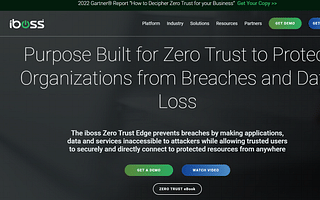Caleigh Gutkowski is a distinguished cybersecurity expert with over ten years of experience in the technology sector. Her expertise lies in detecting and preventing network intrusions. Caleigh is renowned for her talent in demystifying intricate security notions for the ordinary user.
Hey there! Protecting your data from cyber attacks and breaches is crucial in today's digital world. Fortunately, there are several techniques you can employ to safeguard your valuable information. Let's dive into some effective strategies for data protection.
1. Implement Strong Access Controls: Controlling access to your data is the first line of defense. Ensure that only authorized personnel have access to sensitive information. Use strong passwords, multi-factor authentication, and role-based access controls to limit access to those who truly need it.
2. Encrypt Your Data: Encryption is a powerful technique that converts your data into an unreadable format, making it useless to unauthorized individuals. Implement encryption for data at rest (stored on devices or servers) and data in transit (being transmitted over networks). This way, even if your data is intercepted, it will be indecipherable.
3. Regularly Update and Patch Systems: Cyber attackers often exploit vulnerabilities in software and systems. To stay one step ahead, keep your systems up to date with the latest security patches and updates. This ensures that any known vulnerabilities are fixed, reducing the risk of exploitation.
4. Conduct Regular Penetration Testing: Penetration testing, also known as ethical hacking, helps identify vulnerabilities in your systems and networks. By simulating real-world attacks, you can proactively address weaknesses before cybercriminals can exploit them. Regularly conducting penetration tests is an essential part of maintaining a strong security posture.
5. Implement Intrusion Detection and Prevention Systems: Intrusion detection and prevention systems (IDPS) monitor network traffic and detect suspicious activities or potential attacks. These systems can automatically block or alert you to potential threats, helping you respond swiftly and effectively.
6. Train Employees on Security Best Practices: Your employees play a crucial role in data protection. Educate them on security best practices, such as identifying phishing emails, using strong passwords, and avoiding suspicious websites. Regular training sessions and awareness campaigns can significantly reduce the risk of human error leading to data breaches.
7. Regularly Back Up Your Data: Data backups are essential for disaster recovery and mitigating the impact of a cyber attack. Regularly back up your data to offline or cloud storage, ensuring that you have multiple copies in case of data loss or ransomware attacks.
Remember, data protection is an ongoing process. Stay vigilant, keep up with the latest security trends, and adapt your strategies accordingly. By implementing these techniques, you can significantly reduce the risk of cyber attacks and protect your valuable data.
For more insights and tips on network security, penetration testing, and cybersecurity, be sure to check out HackerDesk. We're here to help you stay secure in the digital world!
Stay safe and secure!
Ava Firewall















